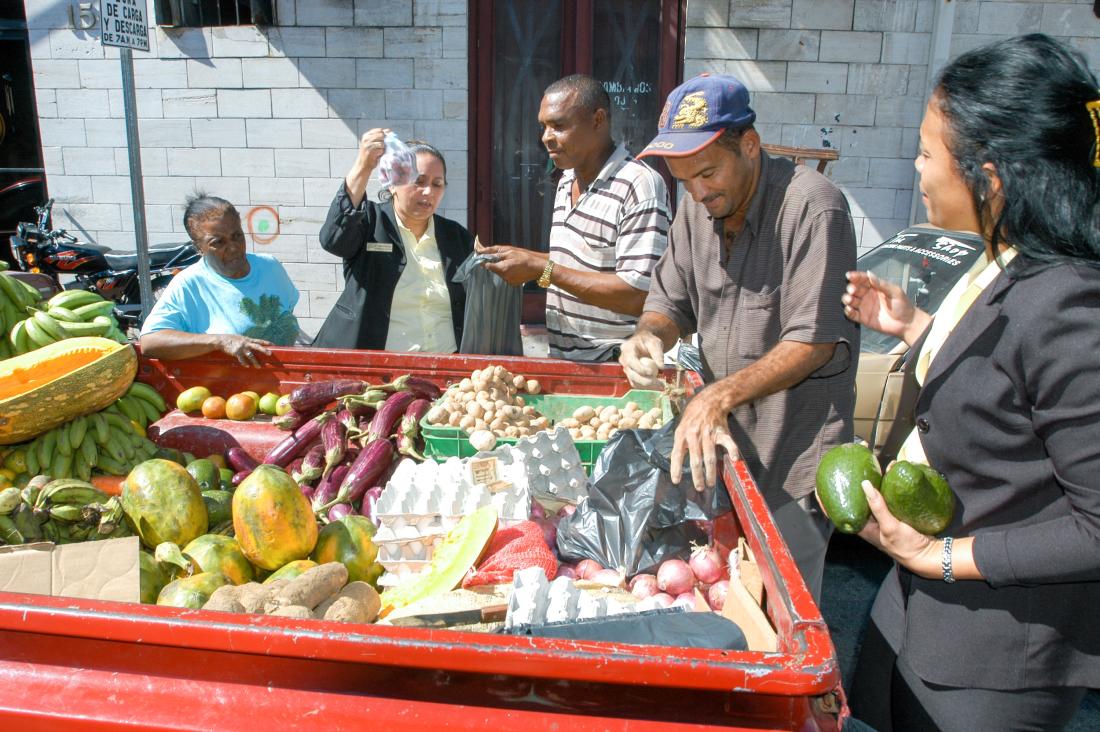Leveraging Government Transfers to Offer Low-Risk Microcredit in the Dominican Republic
- Small and medium enterprises
- Earnings and income
- Business investment
- Cash transfers
- Credit
- Digital and mobile
- Financial literacy
- Conditional cash transfers
Despite the initial promise of microcredit, randomized evaluations have found at best modest effects of microloans on poverty. Digitized payments from government cash transfer programs provide a unique opportunity to offer microcredit while addressing some of its shortcomings, potentially reducing interest rates, default risk, and repayment issues. Researchers are partnering with IPA, Banco BDH León, Banco ADOPEM, and Progresando con Solidaridad (or ProSoli, the Dominican Republic’s government-to-person transfer program), to test whether loans with automatic repayment through ProSoli lead to more productive investments and higher profits and income, leading to higher consumption, wellbeing, and graduation from the transfer program.
Problema de política pública
Although microcredit is available to many poor households, randomized evaluations of microcredit in several countries find only modest effects of microcredit on poverty.1 High interest rates, beneficiaries’ concern over penalties for defaulting, and borrowers’ need to quickly generate cash for weekly or monthly loan payments all pose challenges to microcredit clients’ profitable use of loans.2
Integrating microcredit with existing government transfer programs could address these problems. Using future transfers as collateral and automatically deducting loan repayments from transfers mitigates the bank’s risk, allowing the bank to reduce interest rates. Automatic repayment reduces default risk close to zero, which may ease beneficiaries’ concerns about default penalties. Automatic repayment may also encourage clients to make higher-return, longer-term investments instead of the less profitable, short-term investments clients often make when they must have cash on hand for frequent repayments.
Cash transfer programs, which exist in dozens of countries around the world, already have extensive infrastructure in place to reach poor families; using this infrastructure to administer microcredit could reduce the typically high transaction costs associated with microloan programs. Finding ways to leverage government-to-person payments to improve microcredit has important policy implications. Effective interventions have the potential to scale up to reach hundreds of millions of poor households worldwide.
Contexto de la evaluación
The Dominican Republic’s conditional cash transfer (CCT) program Progresando con Solidaridad (ProSoli) reaches over one million low-income households. Approximately 60 percent of recipients are women. ProSoli recipients receive digitized payments directly into bank accounts, which are tied to prepaid cards that can only be used at authorized merchants to purchase food and other approved goods. There is significant unfulfilled demand for credit among ProSoli recipients, who often use their cash transfer cards as collateral for cash or food advances from merchants, even though these forms of borrowing incur very high interest rates.

Detalles de la intervención
Researchers are partnering with IPA, ProSoli, Banco BHD León, and Banco ADOPEM to conduct a randomized evaluation assessing the impact of offering a low-interest microloan with automatic repayment to ProSoli beneficiaries. Banco BHD León and Banco ADOPEM, two of the banks through which ProSoli beneficiaries receive their transfers, hold financial education “chats” for clients throughout the country. Potential borrowers learn about the loan program at these sessions, and those who are interested in participating and operate or intend to start a microenterprise receive applications.
After Banco BHD León and Banco ADOPEM screen applicants, researchers will randomly assign qualified clients to either receive the low-interest loans with automatic repayment through the transfer, or form part of a comparison group that receives the more typical microcredit product that ProSoli beneficiaries currently have access to through these banks, which has higher interest rates and no automatic repayment. Loan recipients will be able to use their loans only on productive investments in their businesses.
Researchers will conduct household surveys one and two years after loan disbursement, and Banco BHD León, Banco ADOPEM, and ProSoli will provide administrative data. Researchers will evaluate whether the program improves clients’ wellbeing, consumption, productive investments and assets, and eventual graduation from the ProSoli program.
Resultados y lecciones de la política pública
Results forthcoming.
Banerjee, Abhijit, Dean Karlan, and Jonathan Zinman. 2015. “Six Randomized Evaluations of Microcredit: Introduction and Further Steps.” American Economic Journal: Applied Economics 7(1): 1-21; Karlan, Dean and Jonathan Zinman. 2011. “Microcredit in Theory and Practice: Using Randomized Credit Scoring for Impact Evaluation.” Science 332(6035): 1278-1284.
Meager, Rachel. 2016. “Understanding the Impact of Microcredit Expansions: A Bayesian Hierarchical Analysis of 7 Randomized Experiments.” Working Paper.; Giné, Xavier, Pamela Jakiela, Dean Karlan, and Jonathan Morduch. 2010. “Microfinance Games.” American Economic Journal: Applied Economics 2: 60-95; Field, Erica, Rohini Pande, John Papp, and Natalia Rigol. 2013. “Does the Classic Microfinance Model Discourage Entrepreneurship Among the Poor? Experimental Evidence from India.” American Economic Review 103(6): 2196-2226.



